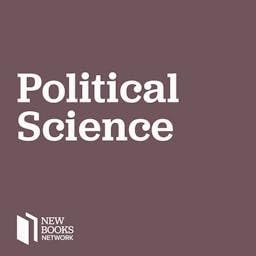False Front: The Failed Promise of Presidential Power in a Polarized Age The University of Chicago Press, 2024 Kenneth Lowande Political Scientist Kenneth Lowande (University of Michigan) has a new book, False Front: The Failed Promise of Presidential Power in a Polarized Age, examining the ways in which presidents seem to be using their extraordinary powers (of the office itself) but are often holding back so as to avoid the full implementation of policies and ideas. This is an interesting thesis, since it takes apart the ways in which presidents operate, getting at not only the presentation of presidential power and the rhetoric used by presidents to illuminate their powers, but also where the full capacity of the Executive branch may not be put into action around issues, policies, or ideas. Lowande is assessing what is essentially symbolic, especially for the president, but is not substantive, even if it may seem that way. This concept, this “false front”, comes out of the polarization within the American political system, and the difficulty that presidents also have in trying to accomplish policy shifts and changes. This is also in context of a Congress that has ceded significant power to the Executive and is generally less productive in terms of passing and implementing policy than it was in the past. This is then combined with the adjustments that presidents and presidential candidates have made in the way they approach the campaign and then their work while in office, since they are compelled to construct their own “brand” as a means to getting elected. Once in office, presidents then need to perform in some way that convinces the public that they are trying to execute what they promised while on the campaign trail. But the political climate makes those outcomes extraordinarily difficult. So, presidents have constructed this path where they publicly lean into policy areas, making public statements, having ceremonies and press releases, taking executive actions, or signing Executive Orders to illustrate their commitment and their activity, but when these policy areas are examined in some depth, it turns out that not much happened after all of this attention and apparent action. Lowande notes, in our conversation, how once he had zeroed in on this presidential mode of operating it is very difficult not to see it. This becomes a kind of model of presidential behavior and strategic approaches. False Front: The Failed Promise of Presidential Power in a Polarized Age essentially interrogates the founding basis for the American presidency, where Alexander Hamilton argued that the president is to be held accountable and responsible for the actions taken in the office itself. The media plays a role in this as well, since they report on the actions taken by the president—at least in terms of rhetoric, press releases, signing ceremonies, and executive actions—but there is no follow on analysis, for the most part, of the actual implementation of the policies and the plans. If there is no measurable outcome to distinguish how the policy solved the problem, or satisfied the demand for the policy, then the presidential action or rhetoric is disconnected from any particular policy or public good. This is also at odds with the reason for a democratic republic—where the demands of the voters are to be translated into real outcomes, not imaginary ones. Lilly J. Goren is a professor of political science at Carroll University in Waukesha, WI. Learn more about your ad choices. Visit megaphone.fm/adchoices Support our show by becoming a premium member! https://newbooksnetwork.supportingcast.fm/political-science
Más
Menos
 54 m
54 m 45 m
45 m 27 m
27 m Mar 1 20261 h
Mar 1 20261 h Feb 25 202641 m
Feb 25 202641 m 46 m
46 m Feb 19 202651 m
Feb 19 202651 m 45 m
45 m
